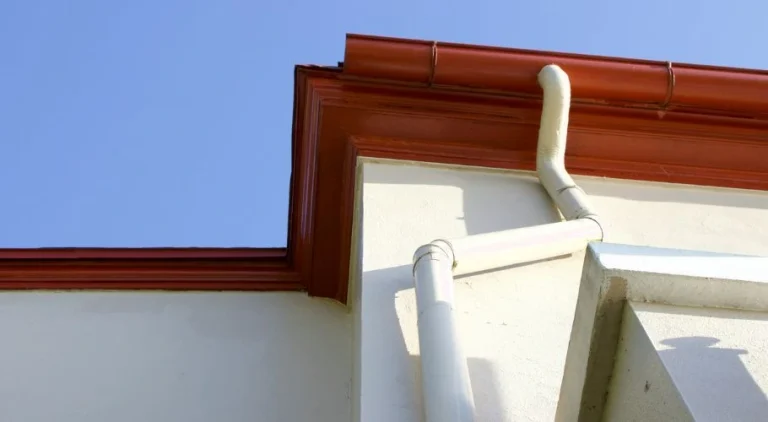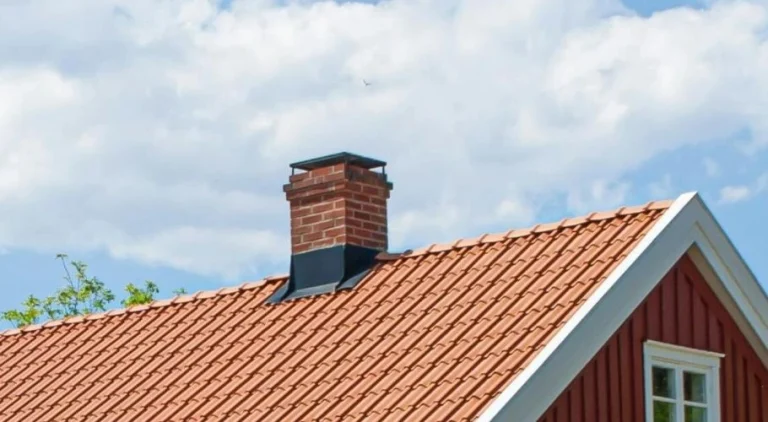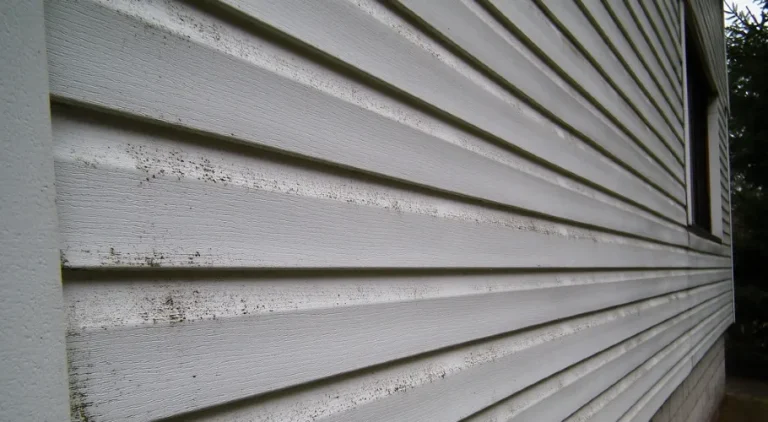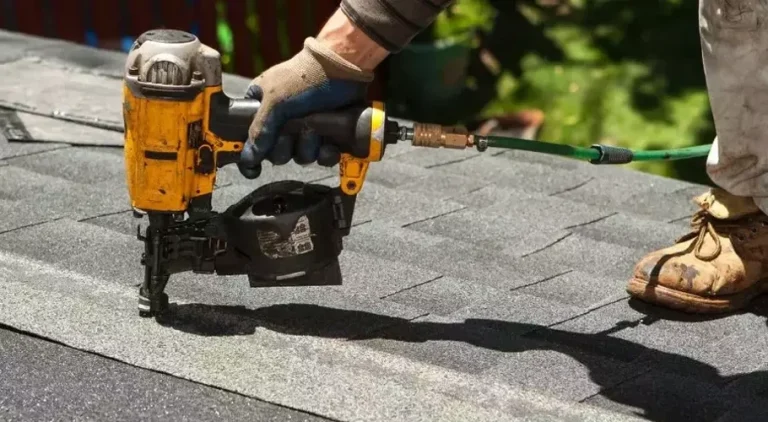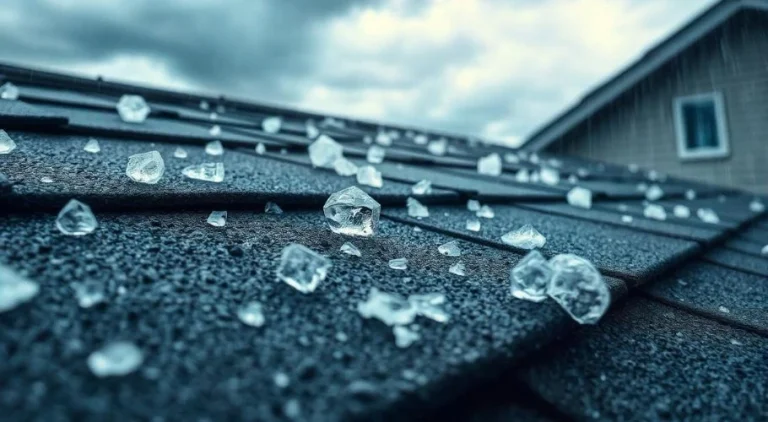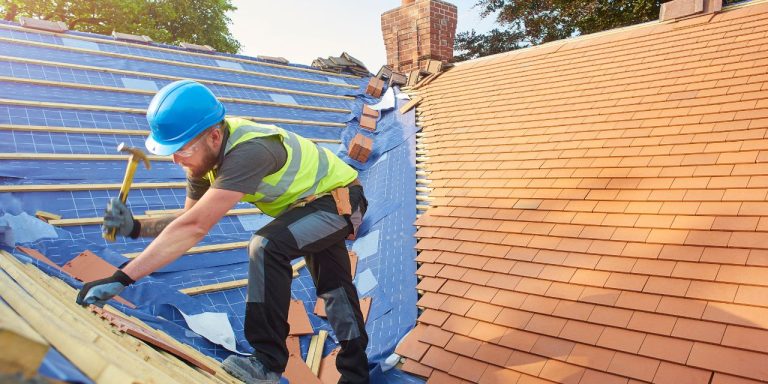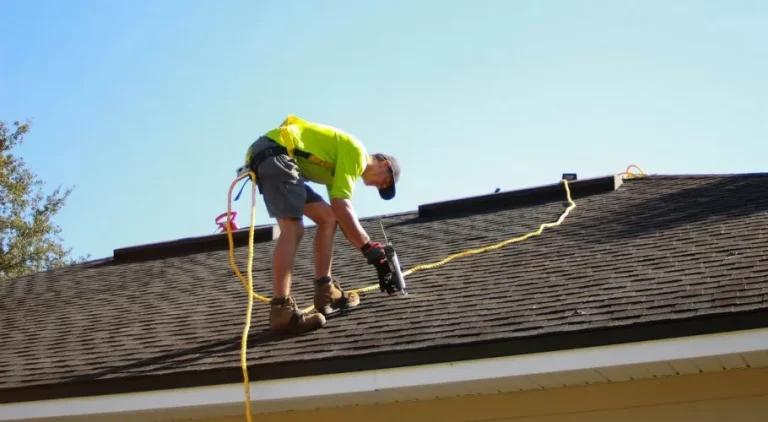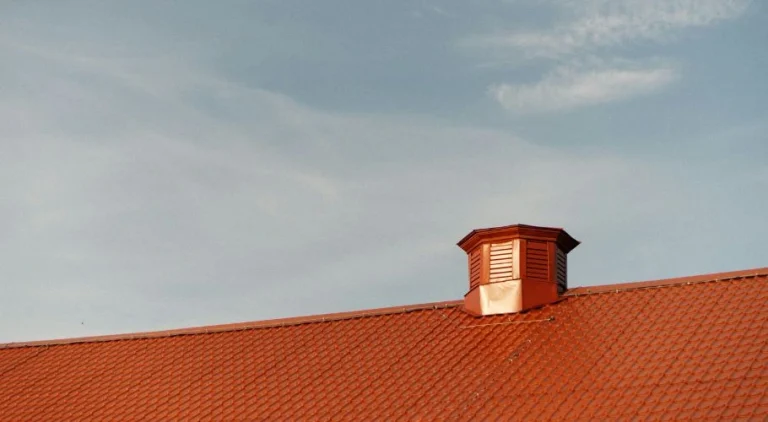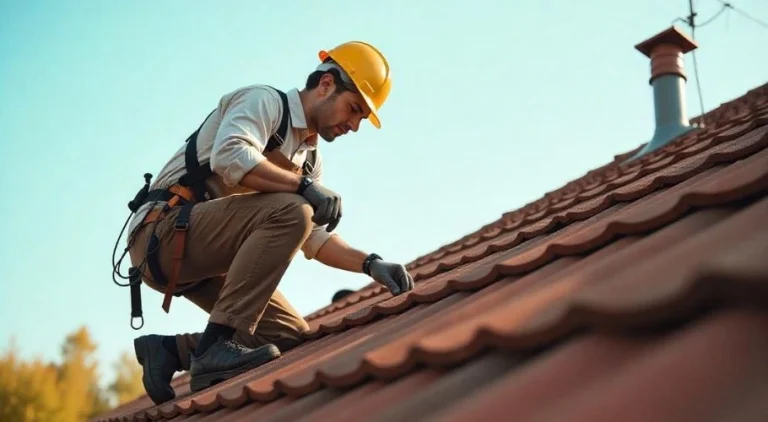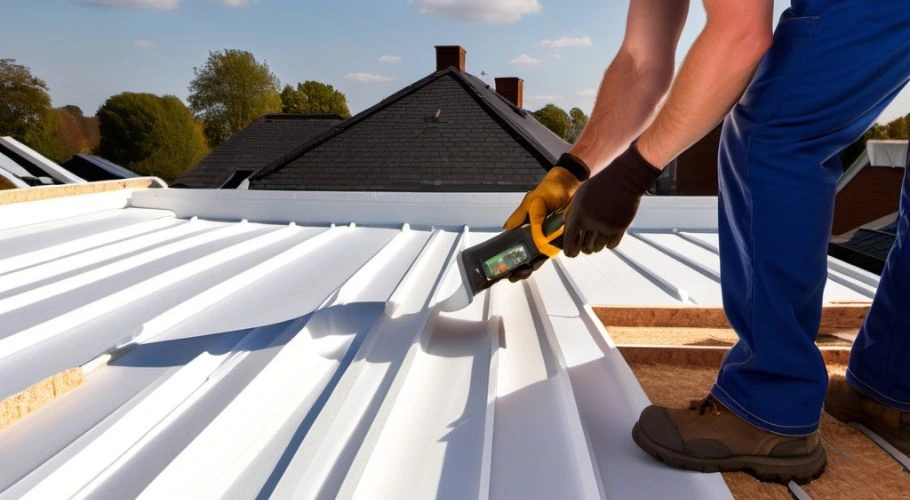
The Role of Roof Insulation: A Complete Guide
When it comes to creating an energy-efficient and comfortable home, proper insulation plays a critical role in roofing. Whether you are constructing a new roof or upgrading an existing one, understanding how insulation impacts your roof’s performance is essential. At Robbins Roofing, your trusted roofing company OKC, we know how crucial the right insulation is for ensuring long-lasting durability and energy savings for your home.
In this blog, we’ll cover everything you need to know about roof insulation, the different types, and how Robbins Roofing can help you choose the best solution for your specific needs.
Related Article: Innovative Roofing Technologies Shaping the Future
What is Roof Insulation?
Roof insulation is a critical component of a building’s roofing system, designed to reduce heat transfer between the interior and exterior of a structure. It plays a vital role in maintaining energy efficiency, comfort, and safety in buildings. Roof insulation helps to minimize heat loss in winter and heat gain in summer, reducing the need for heating and cooling systems. This, in turn, leads to significant energy savings and reduced energy bills. Effective roof insulation also helps to extend the lifespan of roofing materials, protecting them from extreme temperatures and weather conditions.
Understanding the Importance of Roof Insulation
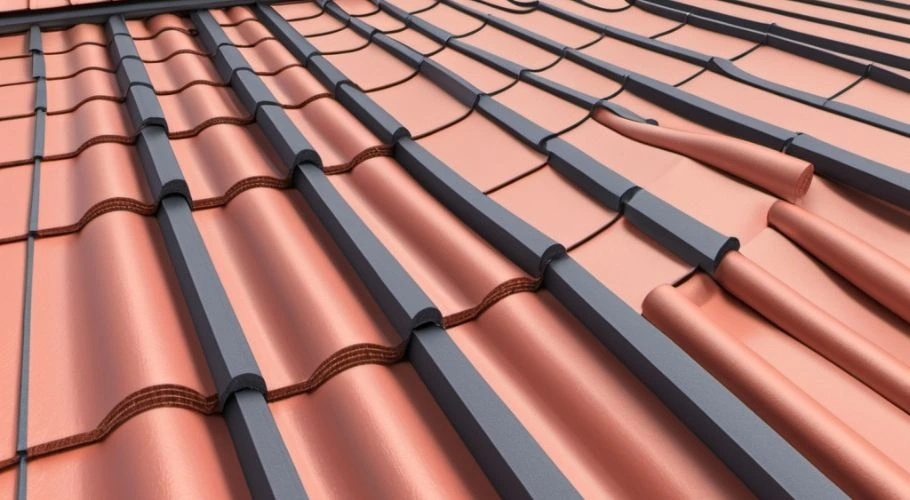
Roof insulation serves as a thermal barrier that reduces heat flow between your home and the outside environment. When you install insulation, it is important to consider the physical demands, safety risks, and potential for improper installation, which may lead individuals to consider hiring a professional. Whether it’s keeping warm air inside during the winter or blocking excess heat in the summer, proper insulation can dramatically improve your home’s energy efficiency. By reducing the amount of energy needed for heating and cooling, insulation lowers your energy bills and helps create a more comfortable living space year-round.
Key Benefits of Roof Insulation:
Energy Efficiency: Insulation reduces heat transfer, leading to less energy use for heating and cooling.
Lower Energy Costs: A well-insulated roof can significantly reduce your monthly energy expenses.
Moisture Resistance: Insulation helps prevent moisture buildup that could damage your roof and home.
Fire Safety: Many insulation products have fire-resistant properties, providing an extra layer of protection for your home.
At Robbins Roofing, we specialize in installing high-quality insulation products tailored to your roof’s needs, ensuring long-term energy efficiency and durability.
Understanding R-Values for Roof Insulation
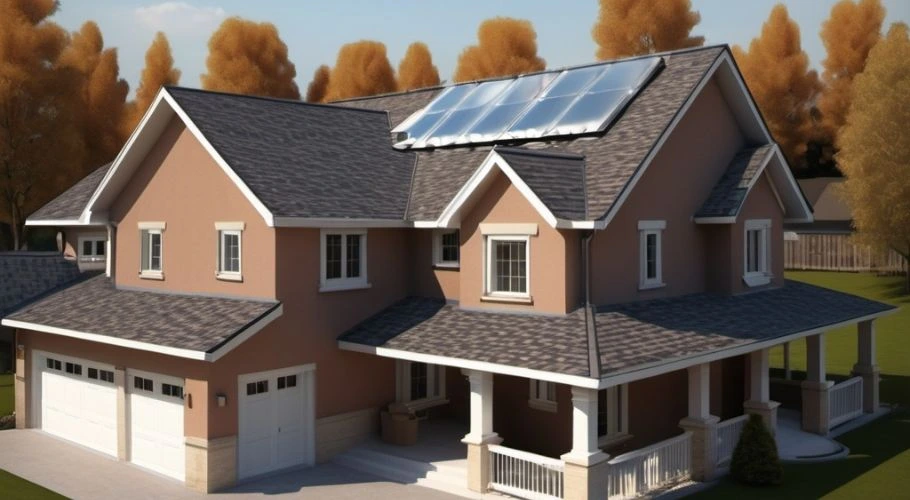
When it comes to selecting the right insulation for your roof, understanding R-Values is crucial. The R-value measures an insulation material’s ability to resist heat flow, with higher values indicating better thermal performance. This means that the higher the R-value, the more effective the insulation is at keeping your home warm in the winter and cool in the summer.
Additionally, it is a measure of thermal resistance, indicating how well an insulation material can resist heat flow. It is a critical factor in determining the effectiveness of roof insulation. The higher the R-value, the better the insulation material is at reducing heat transfer. R-values are typically measured in units of thermal resistance, with higher values indicating better insulation performance.
How R-Values are Measured and Calculated
R-values are measured and calculated using standardized tests, such as those outlined by the American Society for Testing and Materials (ASTM). These tests involve measuring the thermal resistance of an insulation material under controlled conditions. The R-value is then calculated based on the material’s thermal conductivity, density, and thickness. In the United States, the International Energy Conservation Code (IECC) sets minimum R-value requirements for roof insulation in different climate zones.
When choosing insulation for your roof, it’s essential to consider the R-value requirements for your specific climate zone. For example, homes in colder regions will benefit from insulation with a higher R-value to prevent heat loss, while homes in warmer areas may require lower R-value insulation to keep the heat out. At Robbins Roofing, we help you select the right insulation materials with the appropriate R-value for your home, ensuring optimal energy efficiency and comfort.
By understanding the importance of R-Values and selecting the right insulation materials, you can significantly improve your home’s energy efficiency, reduce energy costs, and create a more comfortable living environment. Let Robbins Roofing guide you through the process of choosing and installing the best insulation for your roof, ensuring long-term performance and savings.
Types of Roof Insulation
There are various types of insulation available, each offering unique benefits depending on your home, local climate, and roofing system. The insulation board is particularly beneficial due to its high R-value and effectiveness in preventing thermal bridging. Here are some of the most popular insulation materials we install: Rigid board insulation is a superior option for roof insulation, especially for metal roofs, due to its high R-value and soundproofing benefits. A rigid insulation board is known for its high-performance R-value and effectiveness, making it a cost-effective choice for both wall and attic insulation.
1. Fiberglass Insulation
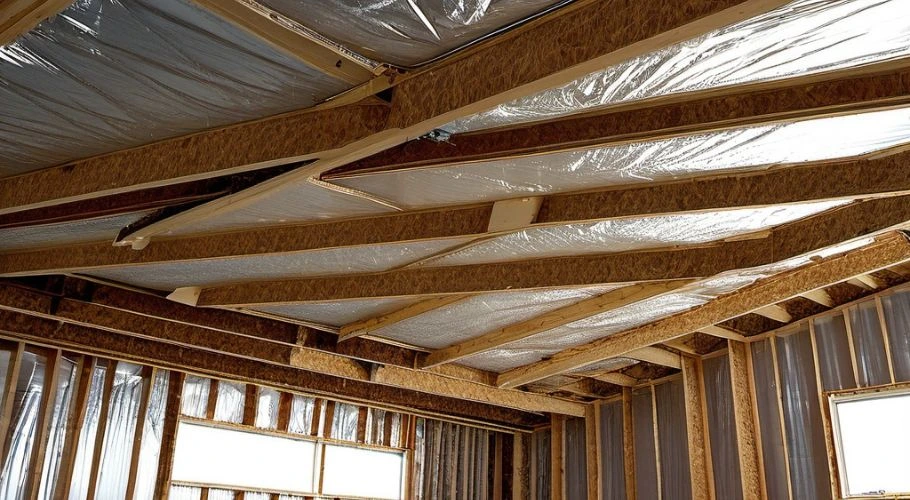
Fiberglass insulation is one of the most common choices for roofing. It’s available in two main forms: fiberglass insulation batts and loose-fill insulation. Both types are cost-effective, provide good thermal insulation, and are easy to install. Fiberglass batts come in pre-cut panels that are placed between the joists, while loose fill is blown into the spaces.
Pros:
Affordable
Good r-value
Fire resistant
Suitable for DIY projects
Cons:
Can settle over time, reducing effectiveness
2. Spray Foam Insulation
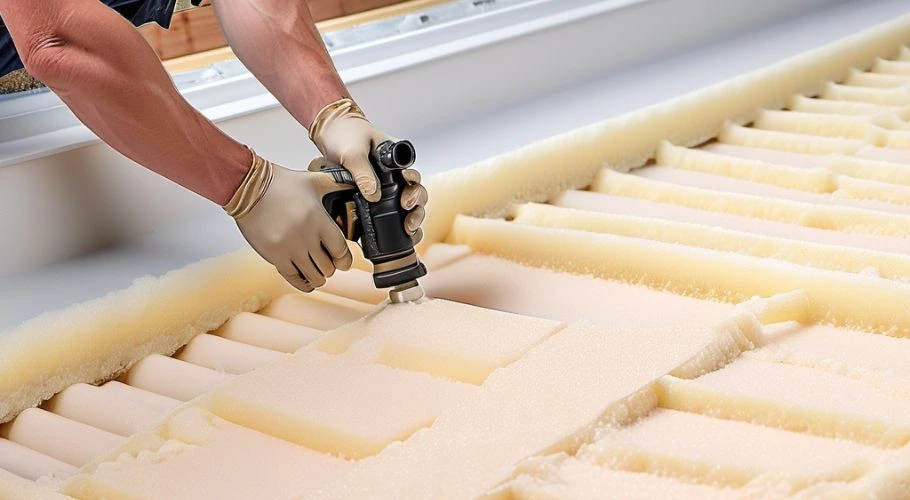
Spray foam insulation expands when applied, filling gaps and providing an airtight seal. This makes it ideal for low-slope roofs and areas that are difficult to reach with traditional insulation.
Pros:
High r-value
Excellent for moisture resistance
Air-sealing properties improve energy efficiency
Great for cold climates
Cons:
Higher cost compared to other insulation types
3. Rigid Foam Insulation
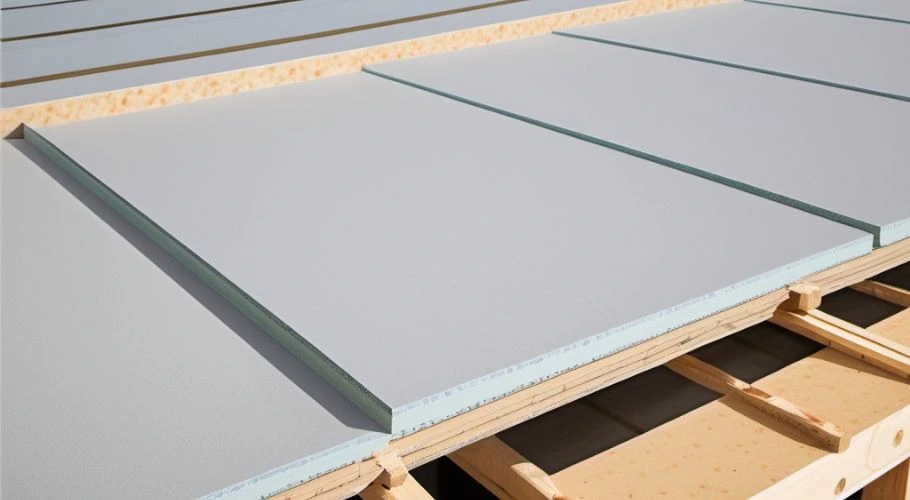
Rigid insulation boards, including rigid foam and polyiso insulation, offer excellent thermal protection and can be used in many roofing systems. Rigid board insulation is a superior option for roof insulation, particularly for metal roofs, due to its high R-value and soundproofing benefits. Polyiso boards are often the go-to choice for roofing professionals due to their high r-value and moisture-resistant properties. Extruded polystyrene (XPS) and expanded polystyrene (EPS) are also common types of rigid insulation boards.
Pros:
High R-values
Moisture resistant
Can be layered for more insulation
Durable option for long-term use
Cons:
May need professional installation
Can be more expensive
4. Cellulose Insulation
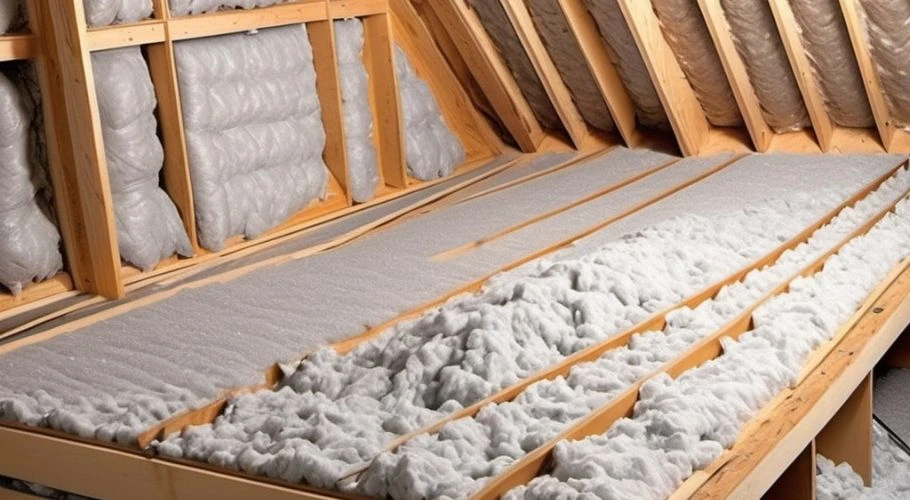
Cellulose insulation is an eco-friendly option made from recycled materials like paper. It’s a good choice for homeowners looking for environmental benefits.
Pros:
Environmentally friendly
Good acoustic properties
Affordable
Cons:
Lower R-values compared to foam insulation
Can absorb moisture, requiring a vapor barrier
The Role of Insulation in Energy Efficiency
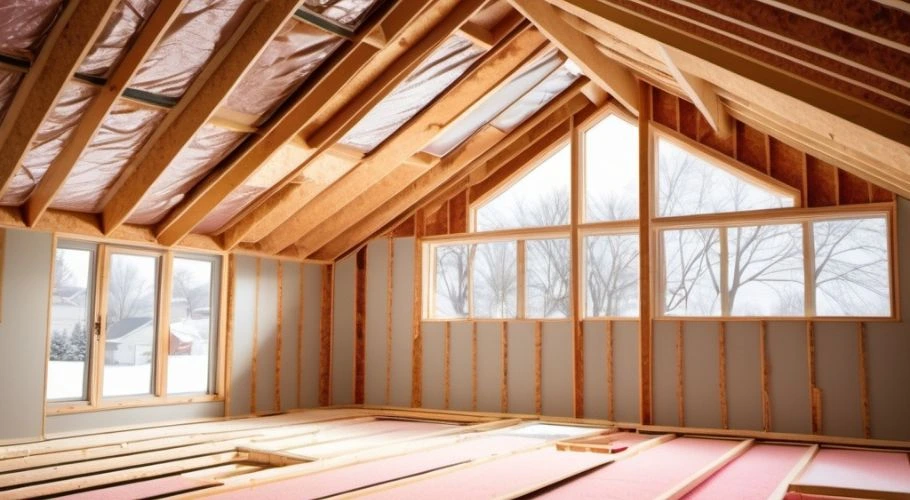
When properly installed, insulation can dramatically improve your home’s energy efficiency. Insulation reduces heat flow through your roof, which means less energy is required to maintain a comfortable indoor temperature. The result? Lower cooling costs in the summer and reduced heating costs in the winter.
High R-value insulation is essential for colder climates, as it can block heat loss more effectively, while lower R-value insulation might suffice in warmer regions where keeping the heat out is the priority. By selecting the right insulation for your local climate and roofing system, Robbins Roofing ensures that your home remains energy-efficient year-round.
Ensuring Proper Installation: Why Robbins Roofing Is the Best Choice
Choosing the right insulation material is important, but ensuring it’s properly installed is critical to achieving optimal energy savings. The process of installing insulation involves several considerations, including the physical demands, safety risks, and potential for improper installation, which is why hiring a professional is often recommended. At Robbins Roofing, we pride ourselves on our expert knowledge of roofing systems and insulation installation. Our team of skilled professionals will guide you through the entire process, from selecting the right insulation to completing the installation.
Why Choose Robbins Roofing for Your Insulation Needs?
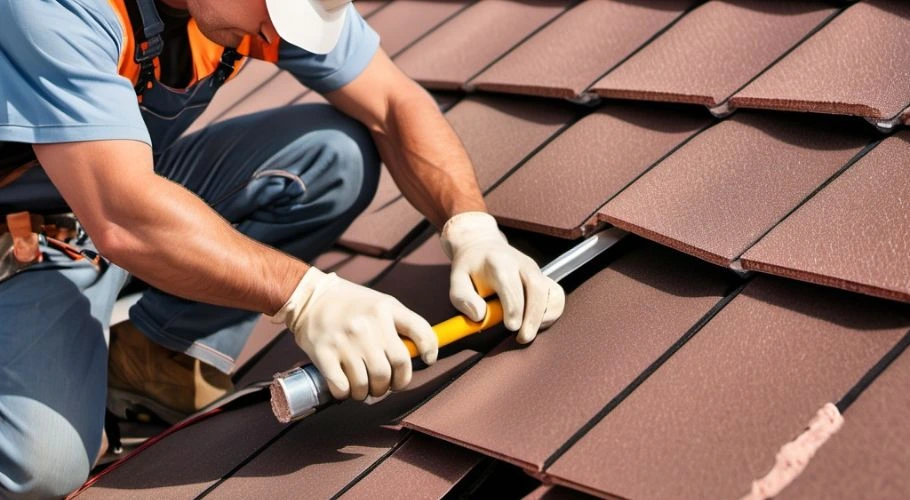
Expertise: With decades of experience in roofing and insulation, our team ensures every project is done right the first time.
Energy Efficiency Focus: We prioritize solutions that maximize your home’s energy efficiency, leading to lower energy bills.
Top-Quality Materials: We use only the highest-quality insulation products, including Hunter Panels, polyiso insulation, and fiberglass batts, to guarantee durability and performance.
Fire Resistance & Safety: We ensure that the insulation we install meets all fire safety and building codes, so your home stays safe.
When you work with Robbins Roofing, you’re not just getting insulation—you’re getting a long-term solution that improves your roof’s performance and helps your home conserve less energy.
Insulation for Different Roof Types
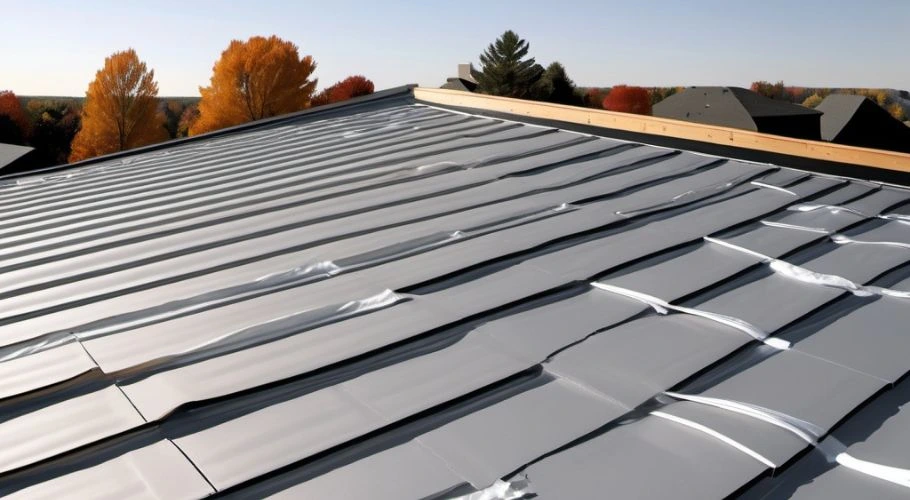
Different roof types require specific insulation approaches to achieve the best results. Here are some key points to consider:
Low-Slope Roofs: Insulation on low-slope roofs needs to focus on moisture resistance and ensuring a continuous thermal barrier. Rigid insulation boards are often a good solution for these types of roofs.
Steep Slope Roofs: Fiberglass insulation batts or loose fill insulation work well for steep slope roofs, as they provide excellent thermal barrier properties.
At Robbins Roofing, we tailor the insulation and installation method to the unique characteristics of your roof, ensuring the best results for your home.
The Installation Process: What to Expect
At Robbins Roofing, we make the installation process as smooth and hassle-free as possible. Here’s what you can expect when you hire us to insulate your roof:
Initial Consultation: We evaluate your roofing system, local climate, and energy goals to recommend the right insulation type.
Material Selection: Whether you’re looking for foam insulation, fiberglass batts, or polyiso boards, we’ll help you choose the best insulation products for your home.
Installation: Our professional team will install the insulation with precision, ensuring that every inch of your roof is properly insulated to maximize energy savings.
Final Inspection: After installation, we conduct a thorough inspection to ensure everything meets our high standards of quality and safety.
Final Thoughts
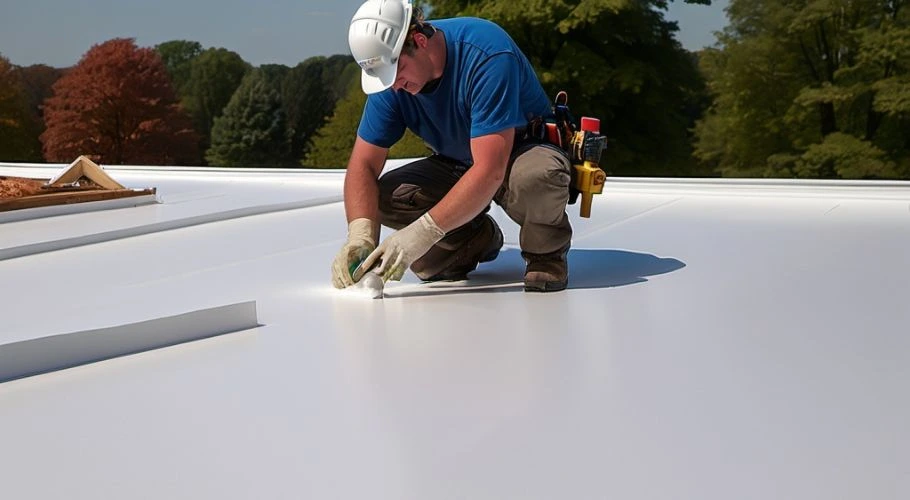
Ready to enhance your home’s energy efficiency with professional roof insulation? Look no further than Robbins Roofing. With our expert guidance, top-quality materials, and commitment to excellence, we’ll help you save on energy costs while keeping your home comfortable year-round. Contact us today for a consultation and see why Robbins Roofing is Oklahoma City’s go-to roofing company for all your insulation needs.
Don’t wait—invest in a better roof and a more energy-efficient home with Robbins Roofing!

